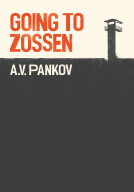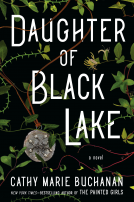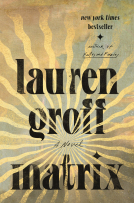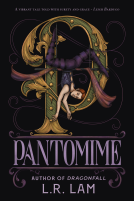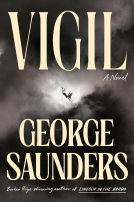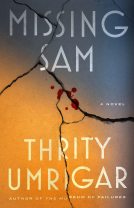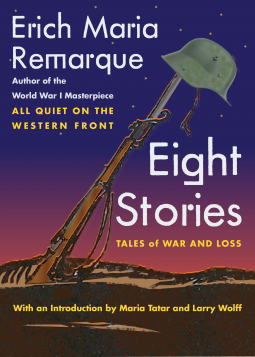
Eight Stories
Tales of War and Loss
by Erich Maria Remarque; Larry Wolff
This title was previously available on NetGalley and is now archived.
Send NetGalley books directly to your Kindle or Kindle app
1
To read on a Kindle or Kindle app, please add kindle@netgalley.com as an approved email address to receive files in your Amazon account. Click here for step-by-step instructions.
2
Also find your Kindle email address within your Amazon account, and enter it here.
Pub Date May 29 2018 | Archive Date Jun 06 2018
NYU Press | Washington Mews Books/NYU Press
Talking about this book? Use #EightStories #NetGalley. More hashtag tips!
Description
A compelling set of short stories from the author of World War I classic, All Quiet on the Western Front
German-American novelist Erich Maria Remarque captured the emotional anguish of a generation in his World War I masterpiece, All Quiet on the Western Front, as well as in an impressive selection of novels, plays, and short stories. This exquisite collection revives Remarque’s unforgettable voice, presenting a series of short stories that have long ago faded from public memory.
From the haunting description of an abandoned battlefield to the pain of losing a loved one in the war to soldiers’ struggles with what we now recognize as PTSD, the stories offer an unflinching glimpse into the physical, emotional, and even spiritual implications of World War I. In this collection, we follow the trials of naïve war widow Annette Stoll, reflect on the power of small acts of kindness toward a dying soldier, and join Johann Bartok, a weary prisoner of war, in his struggle to reunite with his wife.
Although a century has passed since the end of the Great War, Remarque’s writing offers a timeless reflection on the many costs of war. Eight Stories offers a beautiful tribute to the pain that war inflicts on soldiers and civilians alike, and resurrects the work of a master author whose legacy – like the war itself – will endure for generations to come.
Available Editions
| EDITION | Other Format |
| ISBN | 9781479888092 |
| PRICE | $19.00 (USD) |
| PAGES | 192 |
Links
Average rating from 17 members
Featured Reviews
 catherine h, Reviewer
catherine h, Reviewer
So sad, 100 years since the War To End All Wars, and how many wars have there been since? Each worse than the last. Remarque's stories are proof enough that war needs to end. Too many shattered lives (not that leaders care...). Poignant stories.
 Joseph S, Reviewer
Joseph S, Reviewer
Erich Maria Remarque is best known for the masterpiece All is quiet on the Western Front. That book sold nine million copies in the US alone and has been translated into sixty languages. What is perhaps most remarkable about the book outside of its antiwar message is that it crossed national boundaries. Nations who soldiers fought the Germans now felt empathy for a German soldier. Remarque's work is better known in America than the great British war poets who were our allies. The book and the movie was not popular with the rising right-wing government of Germany. Remarque moved to Switzerland in 1934 and lost his German citizenship in 1938. From there, he moved to Los Angeles and became a fixture od the social scene and often seen with Marilyn Dietrich.
These eight stories were published in Collier's and Redbook between 1930 and 1934. The translator remains anonymous although there are ideas as to who did the translating. War is a terrible time for all involved and although peace was celebrated on November 11, 1918, the war went on for many for the rest of their lives. Remarque attempt to capture this in eight stories about German soldiers after the war. One story presents the effects of PTSD or shell shock as it was known at the time. A dramatic story that unfortunately aged well. One hundred years after World War I, we have many soldiers who still suffer from PTSD from recent conflicts. The flag waving and supporting the troops then, like now, only happens at the start of the war, not when broken bodies and minds return home. Some return home late improperly imprisoned in another country. News of their deaths arriving home many years before they do.
Memories of battles and bloodshed are remembered with the simplest pleasures. Moments away from the fighting where man appreciates the world. Moments when meeting the enemy and finding out they are the same, like us. Without weapons, the enemy is just people wanting the same things as everyone else -- to return home, peace, and family. These eight stories do for the post World War I era what All is Quiet on the Western Front did for war. Peace does not mean a return to normalcy. There is damage that has been done and has not healed. The land where the battles have been fought gradually heals back into farmland after it has been "mined" for buried metal. The men are not always so lucky. A powerful and timeless message for mankind as long as we continue to have war.
 Terri W, Reviewer
Terri W, Reviewer
I haven’t read All Quiet on the Western Front. These eight short stories by Erich Maria Remarque suggest it would be a good book to read.
Veterans return from war in emotional distress, physically and socially impaired, and psychologically ill-equipped to manage life.
Remarque has empathy for the enemy. They are men like themselves, bewitched by the strong words of their leaders.
“Josef’s Wife” is haunting, yet ends on a bright note. Josef comes home with amnesia and a strong case of post traumatic stress disorder. His wife stays with him, eventually taking him back to the battlefield, where he regains memories and can function again.
“The Strange Fate of Johann Bartok” is sad. A group of German POWs take over a ship, but are then recaptured. Johann is kept as slave labor for 15 years. By the time he returns home, his wife, believing him dead, has remarried.
Metal scavengers often meet death or cruel injury when unexploded ordinance explodes. The narrator of “Silence” believes they are also violating the dead who remain buried on the battlefields.
These are quick to read, and offer a glimpse of the horror that took place a hundred years ago.
Readers who liked this book also liked:
Nina McConigley
General Fiction (Adult), Literary Fiction, Multicultural Interest

